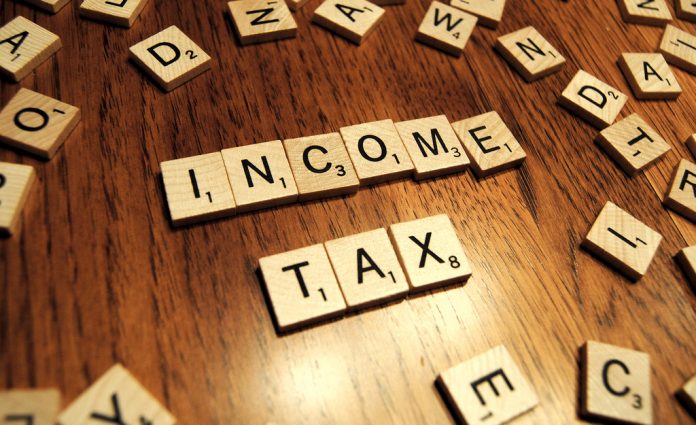This article has been written by Ishani Samajpati, pursuing B.A. LL.B. (Hons) under the University of Calcutta. The article offers a detailed discussion on Section 80EE of Income Tax Act which deals with deductions on home loans for residential house property. This article deals with the subject matter, conditions, and eligibility for a deduction under Section 80EE as well as how to claim the deduction under Section 80EE.
It has been published by Rachit Garg.
Table of Contents
Introduction
It is the civic duty and moral responsibility of any citizen of a nation to pay taxes to help in running the infrastructure of any country. The tax collected from the citizens is used for various purposes, such as reformation, growth, and development of any country. The government also offers tax deductions and concessions in several ways, which help citizens save money. Income tax benefits for home loans are also such a concession offered by the Government of India.
Purchasing a residential home is a tedious process, especially if the buyer is a first-time home buyer. The buyer has to go through all the steps from searching for a proper home which comes within the budget and fulfils his aspirations at the same time. Thereafter, the aspiring buyer has to avail of a home loan. However, Section 80EE of the Income Tax Act, 1961 offers certain deductions for home loans taken in respect of residential house property for a first-time buyer, which can serve as a great relief.
The details of Section 80EE of the Income Tax Act, 1961 are further discussed in the article.
Insertion of Section 80EE of Income Tax Act
Section 80EE of the Income Tax Act, 1961 was first introduced in the Finance Bill, 2013 relating to direct taxes with the intention to amend, mobilise and promote socio-economic growth as well as to widen the tax bases and also to provide certain anti-tax avoidance measures and relief and welfare measures.
Under the relief and welfare measures, the Finance Bill, 2013 discusses the deduction for interest paid on home loans sanctioned during the Financial Year 2013-14 for buying residential house property for the first time. Earlier, only Section 24 of the Income Tax Act, 1961 was used to offer deductions from income from house property under certain conditions.
However, to fulfil the need for affordable housing, the Government proposed an additional benefit in the form of a tax deduction on interest on home loans taken for residential house property solely for first-time home buyers through the insertion of a new Section 80EE regarding deductions in the Income Tax Act.
Under Section 80EE, the Bill proposed that there shall be a deduction on the interest payable on a loan taken by an individual assessee from any financial institution for the purpose of acquiring a residential house property after computing the total income of the eligible individual assessee. It was also proposed to define the term “financial institution”.
It was further proposed that the amendment would take effect from April 1, 2014, making the provisions of Section effective from the assessment year 2014-15 and subsequently for the upcoming assessment years.
Earlier, the maximum amount of claimed tax deductions under this Section was Rs one lakh. This tax deduction was provided only for a period of two years starting from the assessment year 2014-15. Section 80EE was reintroduced in 2017 through the Finance Act, 2016, where the deduction limit was lowered to Rs 50,000 until the loan has been fully paid off.
Subject matter of Section 80EE of Income Tax Act
Section 80EE provides provisions that help a taxpayer who is a first-time home buyer to claim an additional deduction. It provides deductions based on the interest paid on the home loan by an individual as a first-time buyer under the Income Tax Act, 1961.
The deduction shall not exceed a maximum amount of Rs fifty thousand on the interest component of the home loan of any first-time home-buying individual under Section 80EE. Furthermore, the deduction is applicable for the assessment year starting from the 1st day of April 2017 and subsequent assessment years. The deduction is allowed after computing the total income of the individual.
An individual borrower may take home loans from any banking or non-banking financial institution and can take advantage of the income tax deduction under this Section. They can claim the benefit of a tax deduction until the home loan has been repaid entirely.
However, only an individual as a first-time home buyer can claim benefits under this Section. No company or Hindu Undivided Family (HUF) as defined under Section 2(31) of the Income-tax Act, 1961 or any Association of Persons (AOPs) can claim any benefit under Section 80EE.
Financial institutions as defined under Section 80EE of Income Tax Act
Section 80EE only allows a deduction on income tax if the home loan is taken from any financial institution. As proposed in the Finance Bill, 2013, the term ‘financial institution’ has been defined under this Section.
The term ‘Financial institution’ under this Act refers to any banking company where the Banking Regulation Act, 1949 is applicable. It also refers to “any bank or banking institution” such as the State Bank of India and other banks as notified in Section 51 of the Banking Regulation Act, 1949.
An individual is also eligible for a tax deduction if the home loan is taken from any housing finance company.
Under this Section, ‘housing finance company’ means any public company formed or registered in India to carry on a business which provides finance in the long run for the purpose of either construction or purchase of houses exclusively to be used as residences only in India.
Conditions to be satisfied
To claim income tax deductions under Section 80EE, certain conditions need to be satisfied as provided by the Income Tax Act, 1961. They are as follows:
- The home loan should be sanctioned by the financial institution during the period of the Financial Year 2016-17 and for the subsequent years.
Earlier, it was provided under the Section that the deduction would be applicable to a maximum limit of Rs one lakh. Furthermore, the deduction shall be allowed after the calculation of an individual’s total income for the Financial Year 2014-15.
In cases where the payable interest was less than Rs one lakh, the balance amount used to be allowed in the subsequent Financial Year of 2015-16.
Thereafter, this Section was reintroduced for the effective Financial Year 2016-17 and for the subsequent assessment years, and the allowed deduction is up to Rs fifty thousand per year until the loan is paid back entirely.
- The amount of the sanctioned home loan for acquiring the residential house property should be within or a maximum amount of Rs thirty-five lakhs.
- The value of residential house property should be a maximum amount of Rs fifty lakhs.
- The assessee should not own any other house other than the one he plans to buy on the date the home loan has been sanctioned.
- Under this Section, if a deduction is allowed for the interest on the home loan of any individual, no other deduction is allowed on the interest part of the home loan under any other Section of this Act. This is applicable for both the present and any other subsequent assessment years.
- The tax deduction is applicable only to the interest portion of a home loan.
- The home loan for the residential house must be sanctioned by any financial institution such as a bank or any housing finance organisation.
- The benefit of tax deduction under this Section is not available for home loans taken to buy any house property to be used for commercial purposes or any other business. It is strictly applicable to a first-time buyer of a residential house, and the deduction is based on the interest on the home loan.
Other conditions
- In case an individual taxpayer has taken a home loan jointly and each individual pays back the loan separately, both of them would be eligible to claim the deduction individually under this Section. For example, if both the individual and his/ her spouse have jointly taken a home loan and they are jointly paying back the principal and interest, both of them are separately eligible for the deduction.
- For claiming the income tax deduction under Section 80EE, a taxpayer should furnish the declaration with the amount owed and paid as interest and principal as provided by the financial institution from where the loan was taken.
- After computing the total income and declaring the deduction of income tax benefit on the home loan of an assessee, the income of an individual would be subject to taxation as mentioned in the Income Tax Slab rates for the respective Financial Year (FY).
Eligibility for tax deductions under Section 80EE of Income Tax Act
Association of Persons (AOP), Hindu Undivided Families (HUF), Companies, Trusts etc. are not eligible in any condition for tax deduction under this Section. In other words, only an individual is eligible for a tax deduction under this Section either individually or jointly. If an individual has purchased any residential house property jointly and all of them are paying back the payments of the loan, then all of them are eligible to get deductions under this Section.
Though first-time home buyers are eligible for tax deduction benefits under Section 80EE, the assessee should not own any other residential house property, at least on the date the home loan was taken from any financial institution or bank. However, after the date of sanction of the home loan is over, he may acquire other house properties.
Substitution of Section 80EE of Income Tax Act
Under the Finance Act, 2016, some parts of Section 80EE of the Income-tax Act were substituted and reintroduced in the Financial Year 2016-17. Hence, the Section again became effective from April 1st, 2016.
The quantum of deduction was changed for interest paid towards a home loan. The deduction should not exceed Rs fifty thousand. Moreover, it would be effective from the Financial Year 2017-18 and subsequently for the next assessment years.
The deduction is applicable for the home loan sanctioned within the period of 1st April 2016 to 31st March 2017 by the financial institution or bank.
Relation between Section 80EE and Section 24 of Income Tax Act, 1961
Section 24 of the Income Tax Act, 1961 deals with the deductions provided for incomes acquired from house property. Under this Section, the payable income tax under “Income from house property” is calculated after providing two types of deductions. The deductions provided under this Section are as follows:
The standard deduction is provided under Section 24(a) where thirty percent of the net annual value is deductible irrespective of the expenditure by the taxpayer.
The second type of deduction under Section 24(b) is provided on the interest paid on borrowed capital.
Under Section 24(b), interest on borrowed capital for any of the purposes of “purchase, construction, repair, renewal or reconstruction” of the house property under the following conditions:
- Deduction on interest on borrowed capital is paid annually irrespective of the interest paid during that concerned year.
- The capital has to be borrowed on or after April 1st, 1999, and the construction should be completed within five years from the Financial Year when the capital was borrowed.
- The total amount of deduction under Section 24(b) should not be more than Rs two lakhs.
In the case of Commissioner Of Income-Tax v. HG Gupta & Sons (1984), the Delhi High Court held that the list of allowances provided under Section 24 is exhaustive, implying that no deduction can be claimed on the expenses which are not specifically mentioned in Section 24. In other words, no benefit of deduction can be claimed under this Section for expenses on any other grounds than the head of income gained from house property.
If an individual is eligible for a deduction under Section 24, he is eligible to claim further deductions under Section 80EE. As a whole, he is eligible to claim a deduction of a total of Rs two lakhs and an additional Rs fifty thousand.
However, an individual can only claim the second tax exemption under Section 80EE after the limit provided under Section 24 is exhausted.
Insertion of new Section 80EEA of Income Tax Act
After Section 80EE of the Income Tax Act, Section 80EEA was inserted into the Income Tax Act, 1961, applicable for the Financial Year 2020-21. This Section is similar to Section 80EE and deals with the deduction on tax for interest on loans taken for particular house properties.
An individual who is not eligible to claim a deduction under Section 80EE is eligible to claim a deduction under this Section. The deduction under this Section should be within the maximum amount of Rs one lakh and fifty thousand and it is effective from the Financial Year 2020-21 and subsequent years. The tax deductions under this Section are applicable to individuals who availed of home loans in Financial Year 2020-21 and 2021-22 respectively.
The conditions necessary to claim a deduction under this Section are as follows:
- The deduction is applicable to the home loan sanctioned by the financial institution during the period starting from 1st April 2019 and ending on 31st March 2020;
- The stamp duty value of residential house property is within the range of Rs forty-five lakh;
- Similar to the condition of a first-time buyer provided in Section 80EE, the assessee, under this Section, should also not own any other residential house property on the date the loan was sanctioned.
How to claim the deduction under Section 80EE of Income Tax Act
A tax deduction under Section 80EE can be claimed in the following ways:
- Firstly, the amount of interest paid on the home loan during a Financial Year should be calculated.
- Thereafter, the conditions provided under Section 24 and Section 80EE should be examined. The deduction under Section 24 is up to Rs two lakh. After exhausting the ceiling, further deduction on the excess amount for a maximum amount of Rs fifty thousand can be claimed under Section 80EE of the Income Tax Act.
- An individual has to produce a loan approval letter along with the interest certificate with a proper bifurcation of the exact principal and interest amount paid during that particular Financial Year provided by the institution from where the home loan was taken.
Conclusion
The purpose behind the introduction of Section 80EE was to help citizens find affordable housing solutions by allowing taxpayers to claim a deduction for the payment of interest on home loans. For that purpose, the tax deduction benefits under this Section are exclusively available to a person buying a residential house property for the first time. The tax deduction available for individuals under this Section provides relief for taxpayers who have obtained a home loan as a first time buyer. The first-time buyer needs to be aware of the concerned Section in order to claim a benefit on tax deduction.
Frequently asked questions (FAQs) on Section 80EE of the Income Tax Act
Who is eligible for an exemption under Section 80EE?
Only an individual can claim a deduction under Section 80EE. However, an individual can claim a tax deduction on properties purchased either alone or jointly. If an individual has bought a property jointly and they are both paying the instalments of the loan, each of them is individually eligible for this deduction.
What is the maximum limit under Section 80EE?
The maximum limit under Section 80EE is Rs fifty thousand on the interest of a home loan for any residential house property availed from any financial institution.
What are the differences between 80EE and 80EEA?
The differences between Section 80EE and 80EEA are as follows:
- Section 80EE came into effect in the Financial Year 2014-15 and Section 80EEA came into effect on the 1st day of April 2020.
- The stamp duty value of the residential house property should be a maximum of Rs fifty lakh under Section 80EE and should not exceed Rs forty-five lakh under Section 80EEA.
- The maximum amount of loan under Section 80EE shall not exceed Rs thirty-five lakh. But the amount of the loan is not specified in Section 80EEA.
References
- https://cleartax.in/s/section-80eea-deduction-affordable-housing
- https://www.taxmann.com/research/search?searchData=sec%2080ee
- https://www.indiabudget.gov.in/doc/memo.pdf
- https://www.indiabudget.gov.in/budget2013-2014/ub2013-14/mem/mem1.pdf
- https://www.cbic.gov.in/resources/htdocs-cbec/fin-act2016.pdf
- https://tax2win.in/guide/section-80ee
- https://www.incometaxindia.gov.in/news/notification-21-2022.pdf
- https://khatabook.com/blog/section-80ee-income-tax-deduction-for-interest-on-home-loan/
- https://www.coverfox.com/personal-finance/tax/deduction-under-section-80ee/
- https://www.livemint.com/money/personal-finance/new-income-tax-rules-from-1st-april-2022-for-home-loan-borrowers-explained-11648866841118.html
- https://legislative.gov.in/sites/default/files/A1961-43.pdf
- https://taxguru.in/tag/section-80ee/
- https://cleartax.in/s/section-80ee-income-tax-deduction-for-interest-on-home-loan
Students of Lawsikho courses regularly produce writing assignments and work on practical exercises as a part of their coursework and develop themselves in real-life practical skills.
LawSikho has created a telegram group for exchanging legal knowledge, referrals, and various opportunities. You can click on this link and join:
Follow us on Instagram and subscribe to our YouTube channel for more amazing legal content.
 Serato DJ Crack 2025Serato DJ PRO Crack
Serato DJ Crack 2025Serato DJ PRO Crack











 Allow notifications
Allow notifications


